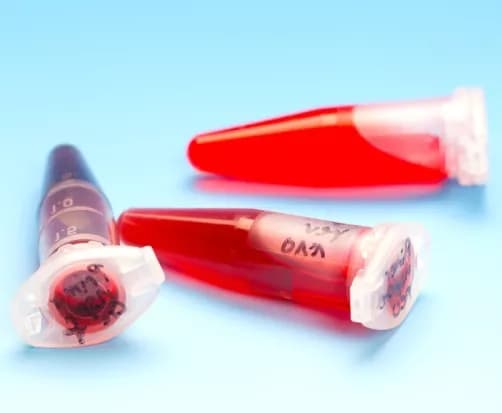What are the other Names for this Test? (Equivalent Terms)
- Blood Smear Giemsa Stain Test
- Giemsa Analysis of Blood Smear
- Giemsa Blood Stain Test
What is Giemsa Blood Smear Test? (Background Information)
- The Giemsa blood stain is a dye used to detect parasites in blood samples. This is because Geimsa stain has the ability to stain parasite cells a different color than human blood cells, which enables them to be seen and visually identified
- Common blood parasites stained by Giemsa include plasmodia (a genus of protozoans that includes malaria), trypanosoma (protozoans), and wuchereria (parasitic roundworms)
- The Giemsa stain binds DNA. It stains human cells purple and parasitic cells pink or red. It also stains the bacterial cells pink
- The Giemsa Blood Smear Test is a test to detect blood parasites. It is used to diagnose diseases, such as malaria, which are caused by parasitic infections
- The collected blood sample is smeared onto a glass slide and stained with Giemsa stain. This glass slide is then examined by a healthcare professional to detect the presence of suspected parasites
What are the Clinical Indications for performing the Giemsa Blood Smear Test?
Following are the clinical indications for performing the Giemsa Blood Smear Test:
- Fever
- Decreased urination
- Rapid pulse, rapid breathing
- Nausea and vomiting
- Diarrhea
How is the Specimen Collected for Giemsa Blood Smear Test?
Following is the specimen collection process for Giemsa Blood Smear Test:
Sample required: Blood
Process of obtaining blood sample in adults:
- A band is wrapped around the arm, 3-4 inches above the collection site (superficial vein that lies within the elbow pit)
- The site is cleaned with 70% alcohol in an outward spiral, away from the zone of needle insertion
- The needle cap is removed and is held in line with the vein, pulling the skin tight
- With a small and quick thrust, the vein is penetrated using the needle
- The required amount of blood sample is collected by pulling the plunger of the syringe out slowly
- The wrap band is removed, gauze is placed on the collection site, and the needle is removed
- The blood is immediately transferred into the blood container, which has the appropriate preservative/clot activator/anti-coagulant
- The syringe and the needle are disposed into the appropriate “sharp container” for safe and hygienic disposal
Preparation required: No special preparation is needed prior to the test.
What is the Significance of the Giemsa Blood Smear Test Result?
A Giemsa Blood Smear Test may indicate infection with blood parasites such as:
- Trypanosoma species
- Plasmodia, which cause malaria
- Wuchereria
The laboratory test results are NOT to be interpreted as results of a "stand-alone" test. The test results have to be interpreted after correlating with suitable clinical findings and additional supplemental tests/information. Your healthcare providers will explain the meaning of your tests results, based on the overall clinical scenario.
Additional and Relevant Useful Information:
- The Giemsa stain is also used to make chromosome maps. This is useful to determine genetic abnormalities
- The stain is also used together with other stains such as Wright-Giemsa stain. It is also a constituent of Wolbach’s tissue stain
Certain medications that you may be currently taking may influence the outcome of the test. Hence, it is important to inform your healthcare provider of the complete list of medications (including any herbal supplements) you are currently taking. This will help the healthcare provider interpret your test results more accurately and avoid unnecessary chances of a misdiagnosis.
Please visit our Laboratory Procedures Center for more physician-approved health information:
http://www.dovemed.com/common-procedures/procedures-laboratory/
Related Articles
Test Your Knowledge
Asked by users
Related Centers
Related Specialties
Related Physicians
Related Procedures
Related Resources
Join DoveHubs
and connect with fellow professionals


0 Comments
Please log in to post a comment.